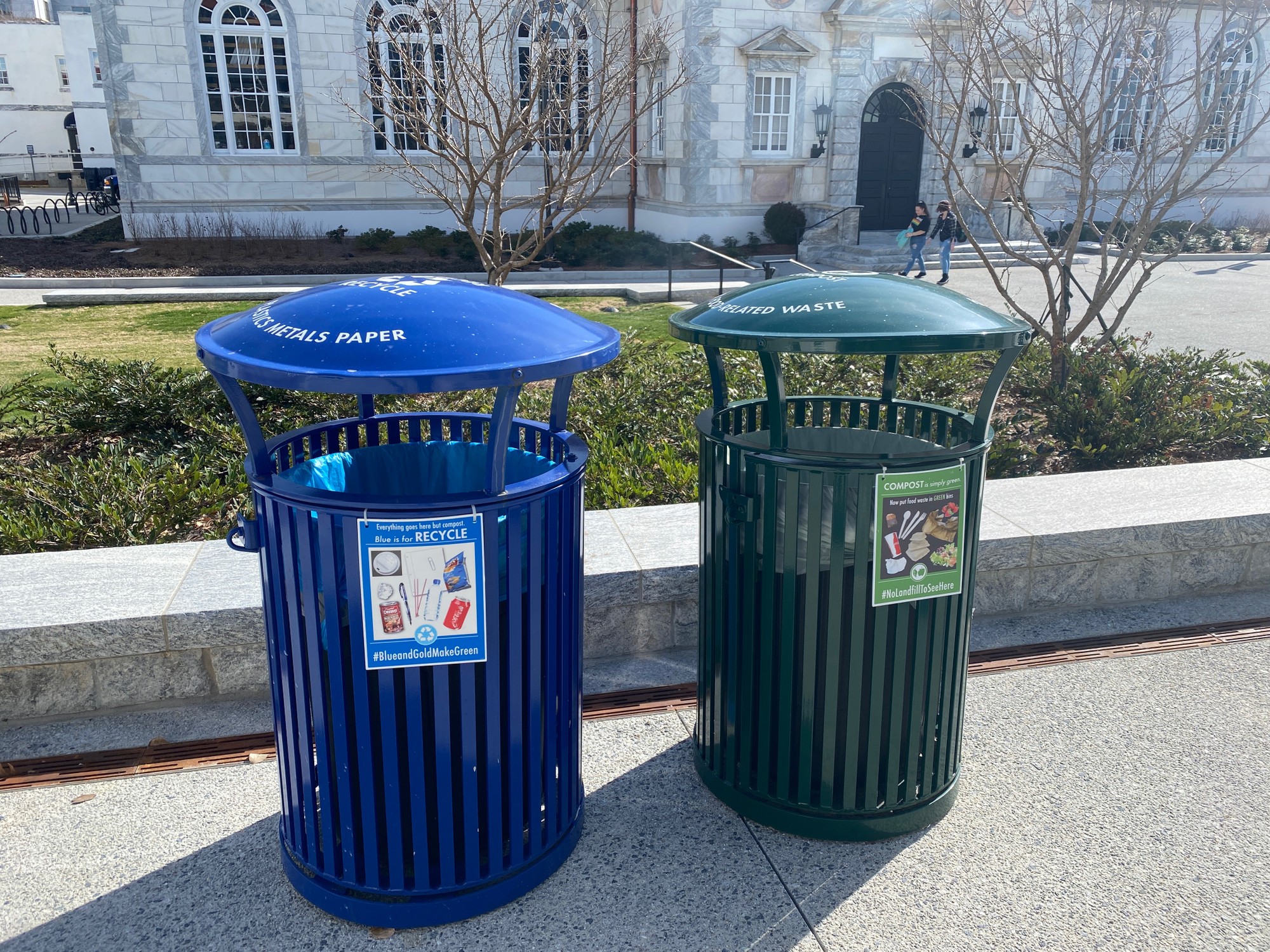In this world of intense population growth and emerging economies, sustainability efforts often take the backseat when compared to the ease of fuel sources that may not be so green. Universities across the U.S. are working to challenge the easy way and transition towards becoming more sustainable and eco-friendly. By installing composts on both campuses, Kennesaw State could be a leader in a nationwide sustainability initiative.
Unfortunately, KSU is not as high on the sustainability rankings as other American universities. On its sustainability website, KSU explains how it is working hard to educate students about sustainability by incorporating it into the curriculum. While KSU has gained some impressive results from installing recycling bins across both campuses, there is still a long way to go in order to catch up to other universities.
Composting should be the next big step needed to catch up to the sustainability successes of other universities. In 2018, Emory University showed 2,101 tons of collected compost from on-campus composting sites. In every bathroom, dining and residence hall the university has placed compost collection equipment. If KSU secured compost collection areas next to the university’s recycling bins, composting would become much more accessible for students.
According to both Emory and American University, zero-waste policies have been put in place that push students and faculty to work harder each day on their efforts to compost and recycle.
American University has LEED-certified buildings, campus vehicles that run on alternative fuels and tree-saving programs such as “adopt a tree,” according to the Sierra Club. Most impressive, though, is their composting method. American University composts 100 percent of paper towels from bathrooms as well as waste from dining halls, according to The Best Colleges.
Emory University also has quite a reputation for outstanding composting achievements. The Emory News Center outlines that the school aims to divert 95 percent of waste from landfills. The university was successful in 70 percent of waste from landfills in 2018.
Emory’s News Center said that the success of this statistic is due to university-wide education on sustainability efforts, as well as promoting composting and recycling. The school even holds engaging competitions every year, urging students and faculty to participate in recycling and composting in a fun manner.
KSU could implement fun game days like Emory to engage the student body in actively becoming more sustainable. Installing composting units across both campuses would encourage students to maintain this habit on their own time, as well.
“I would love to learn about sustainability in a way that wouldn’t put me to sleep,” sophomore history major Alex Olive said. “Reading articles on the subject can get pretty boring.”
If KSU were to undertake these simple measures, the results would be drastic. Setting detailed goals for the weight of compost to be collected would also help the university’s statistics for compost to catch up to the sky-high rates of recycling already in place. With size and commitment working in KSU’s favor, these rates might even exceed those of Emory and American University.



